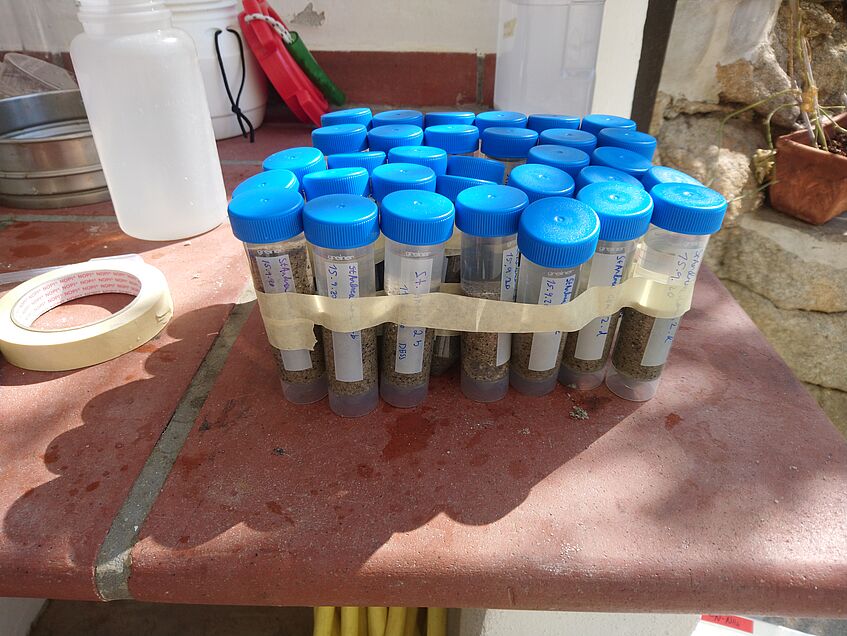Master theses in ecology and zoology of marine nematode-bacteria symbioses

Master theses in ecology and zoology of marine nematode-bacteria symbioses
What is it about?
Marine sandy sediments do not look like typical hotspots of diversity but harbour a vast number of small invertebrates (meiofauna), protozoa and prokaryotes. Among the interstitial meiofauna of subtidal marine sands stilbonematine nematodes live in symbiosis with species-specific ectosymbiotic gammaproteobacteria. This intimate symbiosis has been studied for several decades. However, the understanding of the ecological setting is still incomplete as well as the taxonomy and phylogeny. Using morphological and molecular techniques this thesis will contribute to solve open questions.
Project:
Analyses of sand cores from two different subtidal sands on the Island of Elba, Italy. Identification of the nematode fauna both on the morphological and molecular level, analyses of the abundance and diversity of stilbonematine nematodes in comparison to total nematode and meiofauna. Sediment analyses.
Description of new species on the morphological and the molecular level.
Methods:
Molecular barcoding of environmental DNA (18S rRNA, 16S rRNA) from sand cores to identify and describe the whole community. Identification of meiofauna on the morphological level using microscopy (Nematodes to family or genus level, Stilbonematinae to species level, the rest of the meiofauna as precise as possible in a reasonable time). Grain size analysis of sediments.
Description of new marine nematode species using several molecular and morphological techniques.
Students will be trained directly by the Shallow Water Symbiosis group at the Department for Functional and Evolutionary Ecology in morphological and molecular techniques, and bioinformatics.
Start: immediately
Requirements: Solid knowledge in zoology and ecology, statistics and general laboratory work. Specific laboratory techniques will be taught.
Contact:
Prof. Dr. Joerg Ott: joerg.ott@univie.ac.at or
Mag. Florian Scharhauser florian.scharhauser@univie.ac.at or
Philipp Pröts, MSc philipp.proets@univie.ac.at or
Daniel M. Saavedra, BSc daniel.martinovic.saavedra@univie.ac.at
